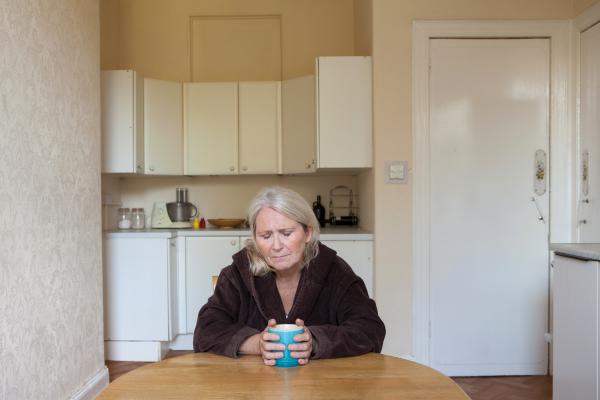Understanding domestic abuse: But he doesn’t hit me...
17 Apr 2018
Often when we first meet with women, they don’t realise that what they’re experiencing is domestic abuse. Whilst they know that the way their partner treats them isn’t right, the fact that physical violence isn’t always present can make women feel embarrassed and reluctant to contact us.
But this is the exact reason why Scotland’s Domestic Abuse Bill has been introduced as legislation. For a long time, we’ve campaigned to explain that a number of elements constitute domestic abuse, not just physical violence.
So if you haven’t been physically harmed, how do you know if you’re experiencing domestic abuse?
Coercive control is a pattern of controlling behaviour that isolates, humiliates and intimidates women. It is designed to make women feel scared and uses a number of abusive methods to gain control in a relationship:
Verbal
If your partner repeatedly shouts at you, mocks you, calls you names, threatens to hurt you or your children, makes accusations, embarrasses you in public or uses words to belittle or disrespect you, this is domestic abuse.
Emotional
Many women experience emotional abuse which can include things such as threatening to take your children away, constantly checking up on you, spreading lies about you to family and friends, following you, putting you down and demeaning you in front of others, deliberately not listening when you talk, monitoring your calls, telling you that you can or can’t do something, convincing you the abuse never happened and becoming extremely jealous when you’re around friends, family or other men.
Financial
Perpetrators can use finances as a method of control and will withhold money from women in an attempt to completely isolate them from family and friends. This can also include disconnecting the telephone line or internet, preventing you from going to work and ensuring you don’t have your own money for food, clothing and essential items.
Sexual
Just because you’re in a relationship, or married, does not mean that you have to meet your partner’s sexual demands. Your partner should never threaten you with sexual violence, force or intimidate you into having sex or degrade you in any way. Even in a relationship, sex without consent is still rape.
If you recognise any of these warning signs, please call us on 01224 593381 for free, confidential advice and one-to-one support.
